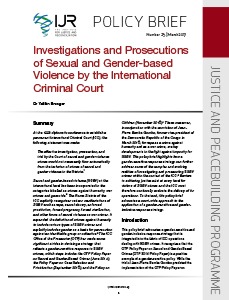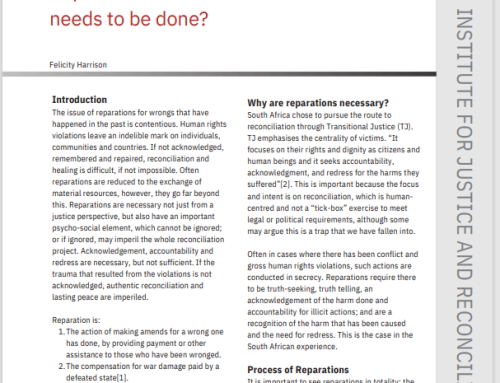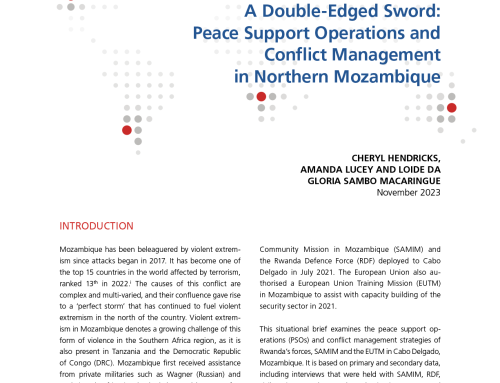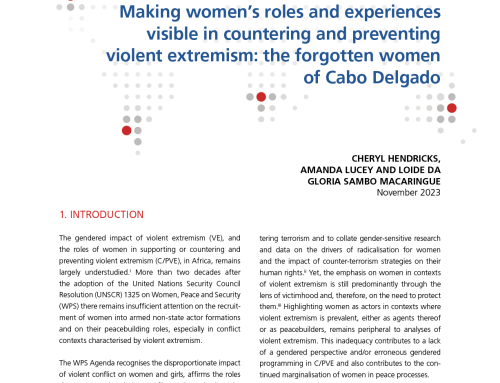
Policy Brief No. 23
At the 1998 diplomatic conference to establish a permanent International Criminal Court (ICC), the following statement was made:
The effective investigation, prosecution, and trial by the Court of sexual and gender violence crimes would not necessarily flow automatically from the inclusion of crimes of sexual and gender violence in the Statute.
Sexual and gender-based violence (SGBV) at the international level has been incorporated in the categories labelled as crimes against humanity, war crimes and genocide. The Rome Statute of the ICC explicitly recognises various manifestations of SGBV such as rape, sexual slavery, enforced prostitution, forced pregnancy, forced sterilisation, and other forms of sexual violence as war crimes. It expanded the definition of crimes against humanity to include various types of SGBV crimes and explicitly includes gender as a basis for persecution against an identifiable group or collective. The ICC Office of the Prosecutor (OTP) has made some significant strides in devising a strategy that reflects a gender-sensitive response to SGBV crimes, which steps include: the OTP Policy Paper on Sexual and Gender-Based Crimes (June 2014); the Policy Paper on Case Selection and Prioritisation (September 2016); and the Policy on Children (November 2016). These measures, in conjunction with the conviction of Jean- Pierre Bemba Gombo, former vice-president of the Democratic Republic of the Congo in March 2016, for rape as a crime against humanity and as a war crime, are key developments in the fight against impunity for SGBV. This policy brief highlights how a gender-sensitive response strategy can further address some of the complex and evolving
realities of investigating and prosecuting SGBV crimes within the context of the ICC. Barriers to achieving justice exist at every level for victims of SGBV crimes and the ICC must therefore continually evaluate the delivery of its operations. To that end, this policy brief advocates a court-wide approach to the application of a gender-sensitive and gender-inclusive response strategy.




